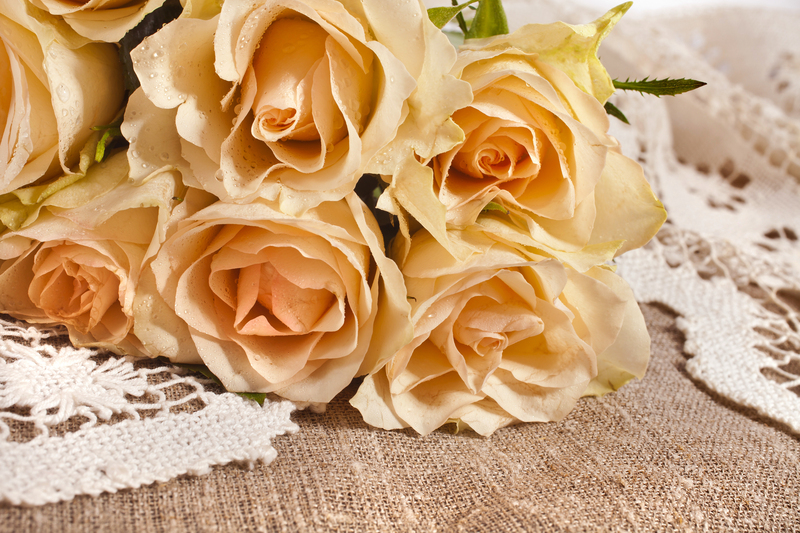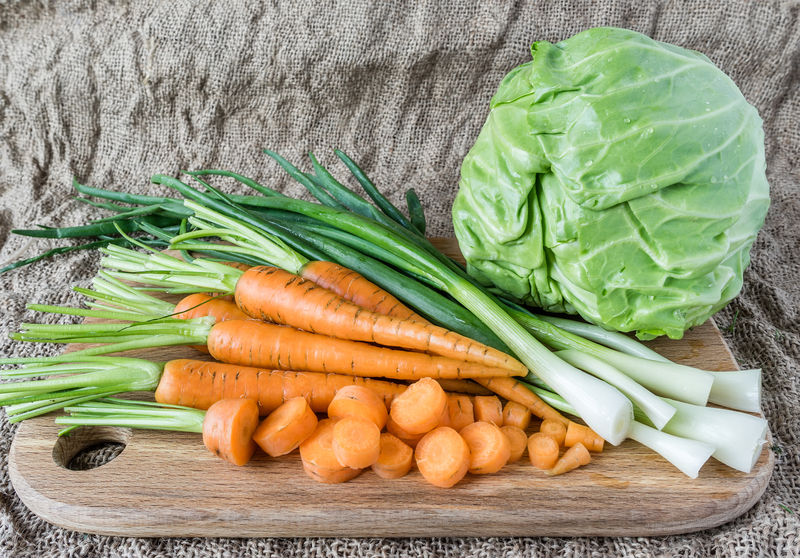Plant Your First Garden with 9 Essential Tips
Posted on 15/09/2025
Plant Your First Garden with 9 Essential Tips
Dreaming of vibrant blooms or harvesting your own salad greens? Starting a garden can be an immensely rewarding, therapeutic, and sustainable hobby. Whether your space is a spacious backyard, a cozy balcony, or a windowsill, venturing into gardening is easier than you may think. In this comprehensive guide, we share nine essential tips for first-time gardeners to help you plant your very first garden with confidence and lasting success.
1. Choose the Perfect Location for Your Garden
Planting your first garden begins with selecting an ideal spot. The location you pick dictates the amount of sunlight, soil quality, and overall microclimate your plants will experience.
- Sunlight: Most fruits, vegetables, and flowers thrive on at least six hours of direct sunlight daily. Observe your outdoor space to determine the sunniest patch.
- Accessibility: Choose a location you'll pass frequently--a visible garden gets more care and attention.
- Drainage: Avoid low-lying areas where water may pool; soggy roots can trigger plant diseases.
If you're gardening on a balcony or indoors, place containers near windows or supplement with grow lights as needed.

2. Know Your Garden Zone and Climate
Understanding your region's plant hardiness zone and local climate ensures you choose varieties that thrive with minimal effort. Consult guides like the USDA Plant Hardiness Zone Map or your country's equivalent to learn which plants are likely to succeed.
- Frost Dates: Identify the average last frost in spring and first frost in fall to plan planting and harvesting times.
- Microclimates: Be aware of variations within your yard, like a sunnier front garden or a shady back corner, and choose plants accordingly.
Why Zone Matters for Beginner Gardeners
Planting outside of your suitable zone can spell frustration when tender seedlings fail due to temperature extremes. Start with zone-appropriate crops for a strong beginner's garden.
3. Plan What to Plant--Start Simple!
The most exciting part of planting your first garden is choosing what you'll grow. However, it's best for beginners to start with easy-to-grow plants that are well-suited to your environment and goals.
Top Picks for New Gardeners
- Herbs: Basil, mint, parsley, chives, and thyme are forgiving and thrive in pots or beds.
- Vegetables: Lettuce, radishes, tomatoes, and zucchini grow fast and yield well.
- Flowers: Sunflowers, marigolds, zinnias, and cosmos brighten any garden with minimal fuss.
Tip: If you have limited space, focus on crops you love to eat or flowers you adore. A small, productive garden is more rewarding than one that's overwhelming or neglected!
4. Invest in the Right Tools--But Keep It Simple
It's tempting to buy every gardening gadget available, but you only need a few essential garden tools to get started:
- Trowel: For digging, planting, and transplanting seedlings.
- Pruners: Essential for trimming, harvesting, and deadheading flowers.
- Watering Can or Hose: Choose based on your garden's size and accessibility.
- Gloves: Protect your hands as you work with soil and plants.
For container gardens, a hand cultivator and scoop may suffice. High-quality basics last longer and make gardening easier for beginners.
5. Prepare and Nourish Your Soil
Healthy soil is the foundation of a thriving garden. Optimizing your soil is a critical step for successful planting:
- Test the soil: Use a simple soil test kit to check for pH and nutrients. Most garden plants prefer neutral to slightly acidic soil (pH 6-7).
- Amend as needed: Improve poor soil by adding compost, organic matter, or fertilizer, depending on your plants' needs.
- Remove weeds and debris: Clear your planting area thoroughly to give seedlings the best possible start.
For container gardening, opt for high-quality potting mix tailored to your plants (herbs, flowers, or veggies). Good soil leads to healthy roots and bountiful harvests!
6. Follow Planting Guidelines and Spacing
Planting your first garden successfully means paying attention to seed packets or nursery plant labels. Each variety has unique recommendations for:
- Depth: Plant seeds at the correct depth for optimal germination and growth.
- Spacing: Overcrowding leads to stunted plants and more disease--give each plant room to breathe and flourish.
- Watering: Learn the preferences for each type; some plants like moist soil, others thrive on the dry side.
Tip: Create tidy rows, grids, or beds to make watering and weeding easier. Label your plants to help remember what's growing where!
7. Water Wisely for First-Time Success
Proper watering is an art every new gardener must learn. Follow these tips for a flourishing garden:
- Water deep and less often: Encourage strong, deep roots by watering thoroughly a few times per week, rather than daily splashes.
- Early or late: Water in the morning or late afternoon to reduce evaporation and fungal diseases.
- Soil check: Stick your finger into the soil; if it's dry an inch below the surface, it's time to water.
- Mulch: Add a 2-3 inch layer of organic mulch (straw, wood chips, leaves) to help soil retain moisture and suppress weeds.
Remember: Overwatering is just as harmful as underwatering. Learn each plant's preference to avoid waterlogged roots.
8. Mindful Maintenance: Weeding, Feeding, and Pest Patrol
Successful garden care includes a bit of regular maintenance. The best way to prevent problems is to walk your garden daily--enjoy the changes and catch issues early.
Key Tasks to Keep Your Garden Thriving
- Weed: Remove weeds regularly, as they compete with your plants for water and nutrients.
- Fertilize: Apply organic or slow-release fertilizers as directed for robust growth (especially for veggies and heavy feeders).
- Monitor pests: Check leaves for signs of insects or disease--act quickly with organic treatments or hand removal if needed.
- Support plants: Stake tomatoes, peas, or tall flowers to keep them upright and healthy.
Tip: Mulching not only conserves moisture but also blocks weed growth, reducing your workload!
9. Enjoy, Learn, and Expand Your First-Time Garden
The most important tip? Enjoy the process! Gardening is a journey of patience, curiosity, and reward. Every season you'll learn more--about your plants, your climate, and your preferences.
- Keep a journal: Track what works, what doesn't, and what you want to try next season.
- Celebrate small wins: Your first harvest or bloom is a huge achievement--share with friends or family and savor your success.
- Expand: Gradually introduce new plants or techniques as you gain confidence, such as starting seeds, composting, or vertical gardening.
Remember: Even gardening failures teach valuable lessons for future success. Stay curious, ask questions, and connect with local gardeners or online communities for support.

Frequently Asked Questions for First-Time Gardeners
What's the easiest thing to plant in a garden for beginners?
Leafy greens, radishes, and sunflowers are some of the easiest crops for new gardeners. Herbs like basil and parsley also grow well in most conditions.
Do I need expensive soil before planting my garden?
Start simple--work with what you have and improve over time. You can amend poor soil with compost or plant in containers filled with potting mix.
How often should I water my first garden?
Water deeply when the top inch of soil feels dry. Most gardens need 1-2 inches of water per week, but this varies by weather and soil type.
Conclusion: Start Your Gardening Adventure Today
By following these 9 essential tips for planting your first garden, you'll set yourself up for a greener, more beautiful, and productive outdoor space. With the right knowledge, a dash of patience, and a spirit of experimentation, even a novice gardener can grow wonders.
Whether your dream is baskets of homegrown tomatoes, a riot of blooms, or a lush herbal nook, the journey starts with a single seed. Dig in, nurture your patch of earth, and let your first garden inspire you for seasons to come!
Latest Posts
Strengthening Your Garden for Adverse Weather Challenges
Plant Your First Garden with 9 Essential Tips
Essential Tools to Elevate Your Outdoor Gardening Experience

